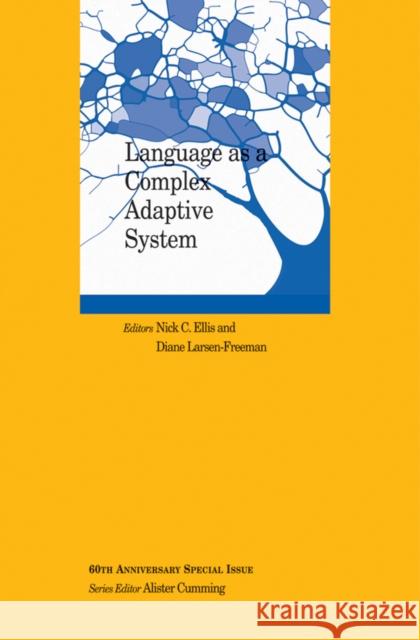Language as a Complex Adaptive System » książka
topmenu
Language as a Complex Adaptive System
ISBN-13: 9781444334005 / Angielski / Miękka / 2009 / 288 str.
- Explores a new approach to studying language as a complex adaptive system, illustrating its commonalities across many areas of language research
- Brings together a team of leading researchers in linguistics, psychology, and complex systems to discuss the groundbreaking significance of this perspective for their work
- Illustrates its application across a variety of subfields, including languages usage, language evolution, language structure, and first and second language acquisition











